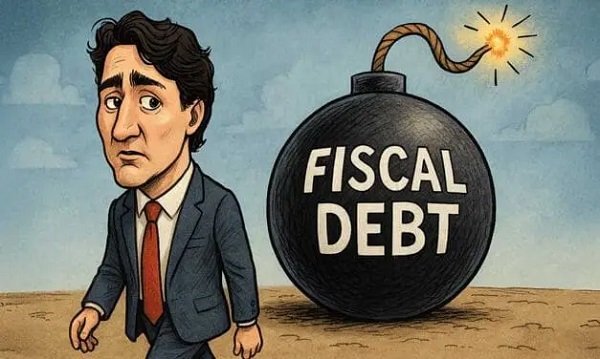Also Interesting
Gambling online in Ontario: tips and hacks for advanced players

Like many other areas in Canada and the world in general, Ontarians are passionate about online casinos. This activity not only helps you have fun and relax, but it can also generate an unexpected win. The important thing is to do it safely and not to cross limits regarding the budget allocated for these games of chance.
However, to have the most pleasant experience and to have more chances of winning, it is important to take into account certain tips. They are created by gambling professionals and are based on important information related to this industry. If you are from Ontario and want to find out how to win at online casino games of chance, then read this article and find out what are the most important tips and hacks for advanced players.
Online gambling in Ontario
The Ontario Lottery and Gaming Corporation (OLG) oversees and regulates Internet gaming in Ontario (OLG). With its help you can find out which sites are safe and reliable where you can create an account.
Slot machines, table games, and lottery games are just some of the online casino games available to Ontario gamblers. You must be at least 18 years of age to access gambling in Ontario. To prove your identity, you will also need to create an account and provide personal information.
Responsible gaming is a topic of great focus for the Ontario regulator. It basically means participating in gambling activities without being at risk of experiencing harm or causing harm to others. All licensed brands in Ontario adhere to to the best practices when it comes to preventing player harm.
Tips and hacks for advanced players
If you have decided to play in an online casino, but have not decided on which one, then we recommend you look at Time2Play. This website gives an overview of the most important criteria based on which you can decide whether a particular brand is a good fit for you.
Licensing, diversity of casino games or betting markets, ease of registration and payments, available bonuses and VIP programs are just part of the things they take into account before suggesting what local gambling brands you should look at.
Here are few tips that can help you make a better and more informed decision when deciding on where to play online casino games for real money:
1. Pay attention to the payout percentages of the games
Online casinos often have an impressive range of games available, but not all titles are advantageous. But what only a few players know so far is that most online casinos also display the payout percentages of slot games. Here, customers can see at a glance which games have the most stakes paid out to players – and therefore also offer the best odds of winning.
The value is always given as a percentage by which, of course, the highest possible value should be given. On average, the payout key for most slot machines is between 93 and 98 percent. So, you should make sure you only play titles with a high RTP.
2. Check the volatility of the games
In addition to the RTP percentage and the volatility of the games, they play an important role in choosing the right title.
When looking for the right slot game, you should have the necessary knowledge about the volatility of slots. Because there are different versions and a basic distinction is made between three variants:
Low volatility – these slots are great for beginners who just want to enjoy the game and relax. On average, the winnings here are smaller but frequent;
Medium volatility – games with medium volatility are primarily suitable for advanced players. Although it takes longer to make a profit here, the final return is higher compared to games that have lower volatility;
High volatility – this means that there are fewer gains here, but there are higher gains. It may take a very long time for a return to be recorded, but the profit is significantly higher.

3. Proper budget management will bring you long-term gains
The possible stakes in online casinos convince with their enormous range and great versatility. If you want, you can start in most slot games with a minimum bet per round. Because of these enormous opportunities, especially beginners quickly run the risk of betting too much money on their game. This often means that a large amount must be accepted as a loss in a short time. Therefore, experienced professionals have been working for many years with a certain money
management, which means precise stake planning.
We would also advise you against combining gambling with drinking. Even though a beer or two during the Canadian Beer Day might not hurt you, alcohol could tempt you to take higher risks and burn through your bankroll a lot faster.
4. Use the free game mode
One of the most popular casino tricks is to take advantage of the opportunity to play slots for free. Especially if you are not sure how the game you have chosen works, if you want to test whether the slot is what you want, or if you want to try a strategy, then it is advisable to play for free.
Although this is not a hack that will help you be more successful at real money gambling later on, we can guarantee that you will enjoy the game much more if you know what to watch out for. Because you can avoid mistakes when betting or when using the risk function.
5. Only play at reputable providers
One of the recommended tricks is to always select reputable suppliers. This means that you should check beforehand how secure the provider is. After all, it doesn’t matter what you win at the casino if your winnings aren’t paid out.
As we discussed in the introduction of this article, it is important to choose regulated and safe platforms to have the most pleasant gaming experience.
6. Take advantage of bonus offers for extra chances to win
This tip is somewhat controversial among professional casino players due to the wagering requirements attached to each bonus. But a welcome bonus or VIP bonus at the casino can be an excellent opportunity to increase your winnings.
Especially since you can often meet many types of advantageous bonuses, such as:
Bonus without deposit
Free spins on recent slots
Doubling the deposit made
Cashback offers
Also Interesting
Top 5 Reasons to Work with a Tutor

Education in Canada is constantly evolving, adapting to new teaching methods, digital tools, and changing student needs. While schools and universities provide a solid foundation, the reality is that every learner is unique—and sometimes the standard classroom approach isn’t enough to unlock their full potential. That’s where tutoring comes in. Tutoring has become a trusted solution for Canadian families who want to ensure that students not only keep up with school requirements but also thrive academically and personally. It’s not simply about getting extra help with homework—it’s about creating a personalized learning experience that addresses specific strengths, weaknesses, and goals. For some students, this means preparing for a major exam or catching up on a subject where they’ve fallen behind. For others, it’s about developing advanced skills, improving study habits, or gaining the confidence to participate more actively in class.
The benefits of tutoring extend beyond grades. Many parents in Canada notice that their children become more motivated, organized, and independent after working with a tutor. By receiving individual attention, students can ask questions without hesitation, work at their own pace, and build academic strategies that will serve them well throughout their education. If you are exploring options such as tutor Oakville, you’re already taking an important step toward investing in a brighter future. Tutoring isn’t just about filling in gaps—it’s about unlocking potential, reducing stress, and building skills that last a lifetime. With that in mind, let’s explore the top five reasons why working with a tutor could be one of the best educational investments for you or your child.
1. Personalized Learning Experience
One of the greatest advantages of tutoring is the ability to create a truly customized learning journey for each student. Unlike in a crowded classroom, where one teacher must divide attention among dozens of learners, a tutor can adjust teaching methods, pace, and focus areas to match the unique needs of a single student. This flexibility makes an enormous difference for those who might be struggling in one subject while excelling in another. For example, a child who finds math intimidating but thrives in reading can receive patient, step-by-step guidance in math, helping them build confidence without feeling overshadowed by classmates who learn faster.
Personalized learning also celebrates individual strengths, ensuring that a student’s talents are nurtured while weaknesses are carefully addressed. Instead of following a one-size-fits-all curriculum, tutoring allows for creative approaches—whether that means using visual aids, real-life examples, or interactive exercises tailored to how a student learns best. Over time, this approach not only improves comprehension but also empowers students to believe in their own abilities. When learning feels accessible and adapted to personal needs, education becomes more enjoyable and meaningful, laying the foundation for long-term success.
2. Improved Academic Performance
Many students who work with a tutor see measurable improvements in grades and test scores. Regular one-on-one sessions provide focused attention, which allows students to ask questions freely and receive instant feedback. This targeted support often leads to stronger comprehension, better homework completion, and increased classroom participation. In the Canadian education system, where standardized tests and university applications can be highly competitive, this academic boost can make a real difference.
| Area of Growth | Without Tutoring | With Tutoring |
| Homework completion | Inconsistent | More consistent and accurate |
| Confidence in class | Low to moderate | High, with active participation |
| Test preparation skills | Limited | Structured and effective |
| Overall grade improvement | Minimal | Noticeable progress within weeks |
3. Better Study Habits and Discipline
Tutoring goes far beyond improving grades. It helps students build the kind of habits that last a lifetime. Many Canadian parents notice that after only a few weeks of working with a tutor, their children become more organized and disciplined. This is because tutoring doesn’t just cover subject material; it also teaches students how to approach learning strategically. Tutors encourage students to manage their time more effectively, break larger assignments into smaller tasks, and develop note-taking methods that make reviewing material much easier.
These skills aren’t limited to school. They help students tackle challenges in everyday life. By learning to stay on top of deadlines, maintain focus, and structure their work systematically, students become more self-reliant and independent. Over time, these habits prepare them not just for academic success, but also for the expectations of post-secondary education and professional careers.
4. Reduced Stress and Anxiety
Academic struggles often create a cycle of stress, low motivation, and in some cases even fear of going to school. Students who consistently feel overwhelmed can lose confidence, which only deepens the challenge. Tutoring provides a safe and supportive environment where these feelings can be addressed in a constructive way. With one-on-one guidance, students no longer feel pressured to keep up with the pace of an entire class or worry about being judged for asking questions. Instead, they can take the time they need to fully understand the material. This reduces anxiety and replaces it with a sense of progress and achievement. In Canada, where students often juggle academics with extracurricular activities, sports, and social commitments, this additional support helps restore balance. The result is a healthier mindset toward learning, improved motivation, and a greater willingness to engage with school.
5. Long-Term Success and Confidence
While tutoring often leads to short-term results like higher grades or better test scores, its greatest value lies in the long-term benefits it creates. Students who learn how to study effectively and who build confidence through tutoring carry those skills far beyond high school or university. They become more adaptable learners, better prepared to handle the challenges of higher education, scholarship applications, and competitive job markets. Perhaps even more importantly, tutoring fosters resilience—students discover that with the right strategies, they can overcome challenges that once seemed insurmountable.
Key long-term advantages include:
- Stronger problem-solving and critical thinking skills
- The ability to set and achieve personal academic goals
- Greater self-confidence that extends into professional and personal life
- A sense of independence and responsibility in learning
- Lifelong skills that support growth in any future career path
What makes these benefits particularly powerful is their lasting nature. Unlike a temporary boost in grades, the skills gained through tutoring become part of a student’s character and approach to life. Confidence built during tutoring sessions often translates into active classroom participation, more ambitious academic choices, and even leadership roles in extracurricular activities. As students grow, they carry these qualities into adulthood, where resilience, independence, and self-motivation are invaluable. In this way, tutoring is not only an investment in education but also in shaping confident, capable individuals who are ready to meet the demands of the future with clarity and determination.
Why Tutoring Matters in Canada
Tutoring should not be viewed as just an extra set of lessons. It is a valuable opportunity to unlock hidden potential, overcome academic barriers, and build skills that will stay with a student for life. Across Canada, more families are beginning to see that one-on-one guidance is about much more than improving grades. It helps foster confidence, discipline, and resilience that shape long-term success. From young children learning the basics to high school and university students preparing for competitive programs, tutoring offers personalized support that a traditional classroom often cannot provide.
Students who work with tutors frequently become more motivated to study, more confident in asking questions, and better prepared to manage both academic and personal challenges. For parents, choosing tutoring is an investment not only in education but also in the personal growth of their children. The outcome is a brighter and more confident future, where students are ready to approach challenges with determination, focus, and independence.
FAQ
How often should a student work with a tutor?
The frequency depends on the student’s goals and learning pace. Most students benefit from one to three sessions per week. One session is often enough for ongoing homework support, while two or three sessions are useful for exam preparation, catching up in a difficult subject, or building consistent study habits. The key is to maintain regular contact so progress is steady and measurable.
Can tutoring help with specific subjects like math or science?
Tutoring is highly effective for targeted subjects. Tutors in Canada often specialize in specific areas such as math, science, English, or French, ensuring students receive expert support. Whether it is understanding algebra, preparing lab reports, or improving essay writing, a tutor can provide strategies and explanations that fit the student’s learning style. This focused support helps fill gaps that may have been missed in class.
Is tutoring only for struggling students?
Tutoring is just as valuable for high-achieving students as it is for those who face difficulties. Many students who are already doing well use tutoring to stay ahead of the curriculum, prepare for university entrance exams, or deepen their knowledge in a subject of interest. Tutoring can also help advanced learners remain challenged and engaged so they do not lose motivation.
How long does it take to see results from tutoring?
Most students notice improvements within the first month of consistent sessions. Immediate progress is often seen in homework completion and class participation. Longer-term changes, such as stronger study habits, higher test scores, and increased confidence, usually take a few months. The speed of progress depends on the student’s starting point and the consistency of lessons.
Are tutoring programs available online in Canada?
Online tutoring has become very popular across Canada. Families appreciate the flexibility of connecting with qualified tutors without the need for travel. Online platforms also allow students to use interactive tools like digital whiteboards, shared documents, and real-time feedback. For busy families balancing school, work, and activities, online tutoring offers a convenient and effective solution.
Does tutoring improve confidence as well as grades?
Academic support naturally helps students achieve higher grades, but the deeper value of tutoring lies in how it builds self-esteem. When students receive encouragement, clear explanations, and personalized feedback, they begin to see themselves as capable learners. This confidence often extends beyond academics and influences other areas of life such as sports, extracurricular activities, and social interactions.
What age groups benefit most from tutoring?
Tutoring is beneficial for students of all ages. Younger children often need help building reading, writing, or math fundamentals. Middle and high school students benefit from support in complex subjects and exam preparation. University students use tutoring to manage heavy coursework, sharpen critical thinking, or prepare for professional programs. At every stage, the right tutoring approach can make learning more effective and enjoyable.
Also Interesting
What Cincinnati Bengals Odds Reveal About Their Playoff Chances Right Now

The Bengals enter their 2025 campaign under the spotlight of hope and scrutiny. After missing the postseason in back-to-back seasons despite elite quarterback play and high expectations, Cincinnati stands at a crossroads.
Their roster remains loaded with star power, yet the questions around durability, defense, and division strength swirl.
As the regular season unfolds, the shaping of their postseason trajectory will be revealed by how the market views them, and the market is speaking loud and clear.
Early Season Market Signal
The numbers tell a stark story: according to a recent breakdown by the media, Cincinnati’s chances of reaching the playoffs are priced at roughly +300 (-375 to miss) in some markets, implying a 25-30% probability.
That price reflects caution, not about talent, but about margin. When you dig deeper, three major themes emerge: injury risk, AFC comp-level, and roster depth.
First, the quarterback remains the gold standard by which a team is judged, but the Bengals are still wrestling with this position.
A significant injury or flurry of missed games would shift everything.
Second, the AFC presents a gauntlet: Baltimore, Cleveland, and Pittsburgh all pose credible threats in the division, and the wild-card room is crowded. The market is pricing Cincinnati more like a “return chance” than a favorite.
Third, depth beyond the stars gives sportsbooks pause. In the playoffs, one misstep can end the ride, and the market’s pricing shows that they’re aware of the challenges facing the Bengals.
How the Odds Break Down
When you study the Cincinnati Bengals odds more closely, the implied probabilities reveal how bettors and sportsbooks view their path. According to the media article, at one point the playoff-odds line shifted from +750 (≈11.8% implied) in Week 6 to +900 (≈10% implied) by Week 7.
That downward drift reflects growing skepticism. Meanwhile, the Super Bowl odds stretched from +3,000 to around +25,000, signaling that while people believe in their talent, the market doesn’t see them as realistic title contenders right now.
For bettors, value often hides in narrative shifts. If you believe the Bengals will beat the injury odds, defend the division, and sneak into the postseason, backing them now may be smarter than waiting.
Conversely, if you share market concerns about margins, the current prices justify a pass.
Strengths That Support Playoff Hope
Despite the caution baked into the lines, the Bengals clearly retain the weapons and architecture to contend.
Joe Flacco is a good stand-in as a replacement quarterback. Ja’Marr Chase, Tee Higgins, and elite receiving talent keep the offense among the league’s most explosive. Their offensive line, though inconsistent, features potential high-end starters.
On the defensive side, additions in free agency aimed at bolstering the pass rush and secondary show intent to remedy prior weakness.
From a betting perspective, this matters: talent and upside create outcomes the market must eventually adjust to. If Cincinnati gets hot early, odds will compress fast. A strong run in the first half could transform them from a value pick to a priced-out favorite. For now, you’re buying potential before it becomes consensus.
Weaknesses of the Market Highlights
However, the Bengals’ case for support is far from airtight, and that’s precisely what the odds reflect. The Joe Burrow injury was a devastating blow. However, it must be said that Flacco has shown signs of righting the ship.
Additionally, their defense has shown vulnerabilities, especially against elite passing offenses. In the AFC North, every division game carries extra weight, and they’ll face rival defenses that prepare well.
The schedule also stacks the pressure: several key road games, likely high-stress situations, and a razor-thin margin for error.
From a betting perspective, that opens several hurt possibilities: if Cincinnati falls behind early in any of those tilt-ups, the line might move unfavorably fast. Bettors aren’t just wagering on talent; they’re wagering on execution, durability, and situational strength.
Where the Value May Lie
Given the current landscape, where do smart bettors find value with the Bengals? Here are three angles:
1. Early-Season Turnaround
If Cincinnati jumps out to a 2-0 or 3-0 start, its playoff odds will compress. Placing a futures wager early may yield a higher payout than waiting,
2. In-Season Props and Momentum Shifts
The team’s win-total line sits around 7.5 games in some markets. If you believe they will exceed that, the overlap with playoff qualification becomes strong, so angle toward “over” win totals as correlated bets.
3. Matchup Leverage
Games against weaker defensive units or outside the AFC North may provide advantageous lines. If you believe Cincinnati’s offense clicks and stays healthy in those contests, backing individual game odds might offer hedged value in the ticket to the postseason.
High Upside Contender
The market treats the Bengals as a high-risk, high-upside contender. However, the odds reflect more caution than expectation; the team has the tools, but everything must align. For bettors, that alignment may represent opportunity.
If you believe Flacco stays upright, the defense improves, and Cincinnati navigates the AFC North successfully, the current futures odds offer potential value. If you lean toward the market’s caution, expecting one or more of those factors to fail, passivity may be the smarter play.
The next few weeks will be pivotal. The early-season stretch, key divisional games, and roster health will either validate or invalidate the pricing. When the market notices one of those ticks in the favorable direction, the Cincinnati Bengals’ odds will shift hard and fast.
For fans and bettors alike, that means you won’t just be watching games, you’ll be reading lines, identifying inflection points, and positioning ahead of the market.
Because in the wild world of NFL playoffs, knowing that talent matters less than knowing when the talent catches the market off guard.
*Content reflects information available as of 2025/10/22; subject to change.
-

 MAiD2 days ago
MAiD2 days agoDisabled Canadians increasingly under pressure to opt for euthanasia during routine doctor visits
-

 Alberta2 days ago
Alberta2 days agoPetition threatens independent school funding in Alberta
-

 Business2 days ago
Business2 days agoCanada Revenue Agency found a way to hit “Worse Than Rock Bottom”
-

 Digital ID1 day ago
Digital ID1 day agoToronto airport requests approval of ‘digital IDs’ for domestic airport travel
-

 Media1 day ago
Media1 day agoCarney speech highlights how easily newsrooms are played by politicians
-

 Business2 days ago
Business2 days agoTrans Mountain executive says it’s time to fix the system, expand access, and think like a nation builder
-

 Opinion1 day ago
Opinion1 day agoCarry-On Carney And The Trials Of Brian Peckford
-

 Business2 days ago
Business2 days agoCanada is still paying the price for Trudeau’s fiscal delusions




